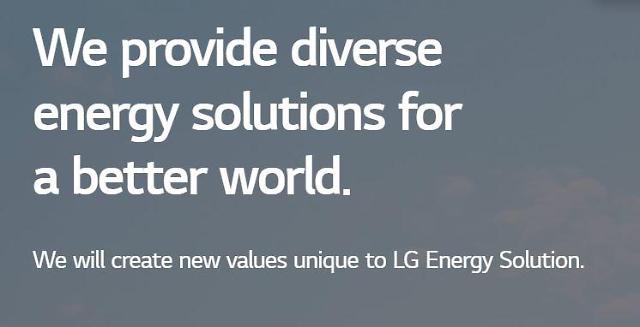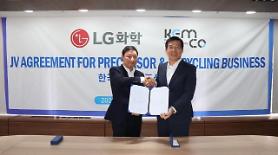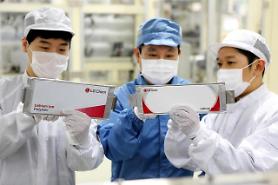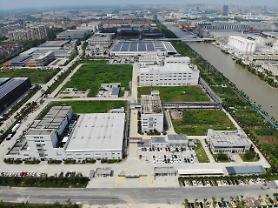
[Courtesy of LG Energy Solution]
SEOUL -- LG Energy Solution, the battery-making wing of South Korea's LG Group, will establish a joint venture with its Chinese partner, Zhejiang Huayou Cobalt to extract and recycle core materials from waste batteries. The deal comes on the heels of soaring prices in battery-grade minerals such as nickel, cobalt, manganese and lithium.
LG Energy Solution (LGES) said it has signed a memorandum of understanding with Huayou on the establishment of a battery recycling joint venture in China this year. Cathode materials such as nickel, cobalt and lithium will be extracted from scrap generated during the production of batteries and collected waste batteries.
Extracted metals will be supplied to LGES' battery production plant in Nanjing, Jiangsu Province. A pre-treatment plant will be established in Nanjing, while a plant to process recycled metals will be located in Quzhou in China's western Zhejiang province.
"For a sustainable and stable battery supply chain, it is essential to establish a virtuous cycle of resources that manages the entire life cycle of batteries," LGES CEO Kwon Young-soo said in a statement on July 26. "By securing battery recycling capabilities, we can further strengthen the stable supply of raw materials and cost competitiveness."
Huayou has maintained a partnership with LG Chem, the mother company of LGES since they signed a deal in 2018 to jointly produce key materials for lithium-ion batteries. "With this MOU, the cooperative relationship between Huayou Cobalt and LGES will be further strengthened," Huayou chairman Chen Xuehua was quoted as saying.
The battery industry requires core metals like nickel and cobalt to be supplied in specific chemical forms for the production of precursors. LG Chem has tried to establish a stable supply network of raw materials for LGES through a series of preemptive investments and partnerships with foreign companies.
In May 2022, LG Chem agreed to set up a joint venture with Tianjin B&M Science and Technology, the subsidiary of Huayou, for investment in LG Chem's cathode material plant, which is to be completed in 2024 in Gumi some 202 kilometers (126 miles) southeast of Seoul.
Precursors are raw materials for cathodes, which are manufactured by combining nickel and other metals. Data from the Korea International Trade Association (KITA) showed that 79 percent of South Korea's precursor demand is dependent on imports, with China pocketing more than 90 percent of payments.
Copyright ⓒ Aju Press All rights reserved.




